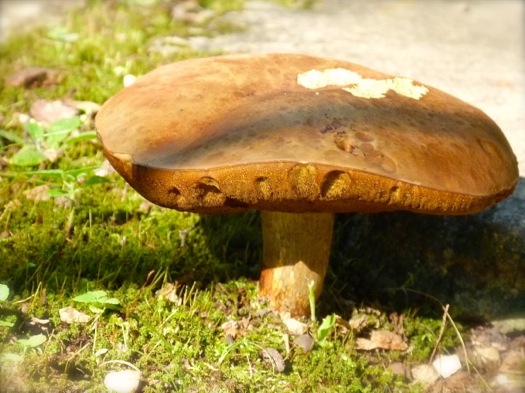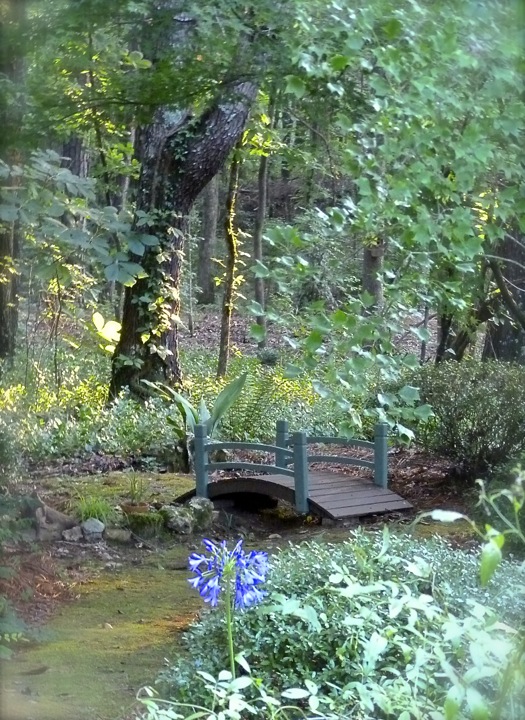Cicada: Sounds Like an Alien,Tastes Like Asparagus
 Sunday, July 31, 2016 at 6:30PM
Sunday, July 31, 2016 at 6:30PM The creature's ghost was clinging to a gardenia leaf, and I paused to take photos of the spooky critter.

I was looking at the husk of a cicada nymph. It is summertime, and I was not surprised to see it.
Every summer in Alabama, the mating calls of cicadas are ubiquitous as evening falls. This strange racket has been likened to the alien sound of a UFO. The male cicada produces his love song by flexing a pair of drum-like membranes in his abdomen, called tymbals. Small muscles pull the tymbals in and out to create the clicking sound. The female cicada does not find the music alien at all, but rather is quite attracted to it.
After mating, the female cicada lays her tiny eggs in a groove she makes in a tree limb. The eggs hatch after about 6 to 8 weeks. A newly hatched cicada looks a lot like a white ant or termite. The immature cicada, called a nymph, feeds on fluids from the tree until it falls to the ground, and then it searches for roots to feed upon. Depending on the species, the nymph will spend up to 17 years tunneling and feeding underground. While cicadas sometimes injure small trees, they are relatively harmless and do not cause significant environmental damage.
There are about 1300 species of cicadas identified world-wide. Most North American cicadas belong to either the Neotibicen or the Magicicada genus. The Neotibicens are also called annual or dog day cicadas. They emerge from the ground every year during the "dog days" of summer, in late July or August. The most famous cicadas are the Magicicadas. They emerge every 13 or 17 years, swarming out of the ground suddenly and in huge numbers. I still remember when they emerged in Alabama in 2011. Because of their numbers they sometimes are called locusts, but they actually are related to aphids, not locusts or grasshoppers.
After they emerge from the ground, the nymphs climb the nearest tree and then shed their exoskeleton. Soon their wings inflate with fluid and their adult skin hardens.
Their brief adult life, only weeks, is spent looking for a mate. Males usually sing at night when their predators are less active, and there are plenty of predators. Mammals, birds, and amphibians all eat cicadas, sometimes to the point of gorging themselves. Even many humans consider them a tasty treat. They are high in protein, low in carbohydrate, and gluten free. One can find lots of cicada recipes on the internet. I have never eaten one, but I have heard they taste like asparagus.
You may also enjoy my previous post: Dog Days of Summer













